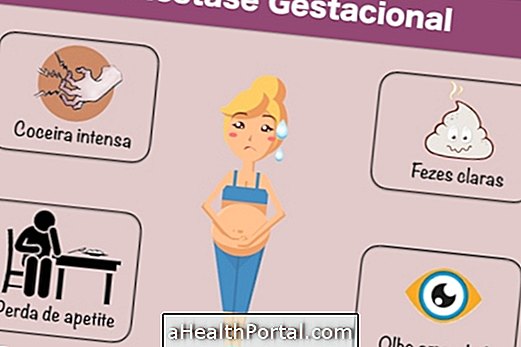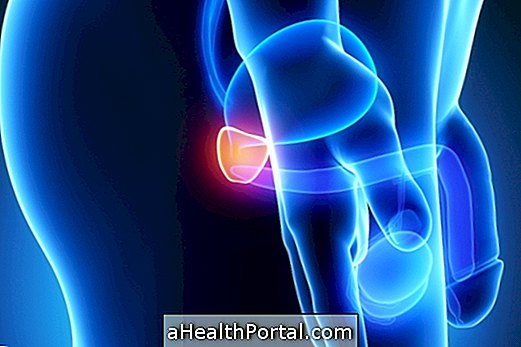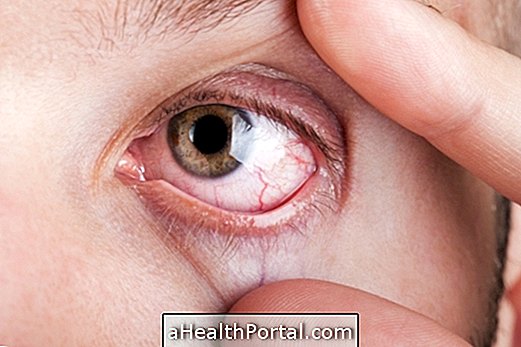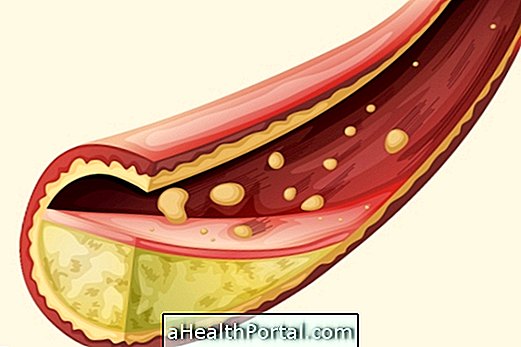The thyroid in pregnancy is important for the health of the mother and baby and any dysfunction must be identified and treated so as not to cause complications for the baby who needs the mother's thyroid hormones until approximately the 12th week of pregnancy. After this phase, the baby is able to produce its own thyroid hormones.
Thyroid hormones are T3, T4 and TSH which can be increased or decreased causing the main thyroid problems in pregnancy such as hypothyroidism and hyperthyroidism. These disorders can cause miscarriage, premature birth or influence the development of the fetus. In addition, thyroid dysfunctions can cause changes in the menstrual cycle, making it more difficult to get pregnant.
Therefore, it is important to do preventive exams to get pregnant and prenatal to diagnose hypothyroidism or hyperthyroidism, ensuring the health of the mother and baby. Find out what tests should be done when planning to become pregnant.

The main thyroid disorders in pregnancy are:
1. Hypothyroidism
Hypothyroidism is a decrease in the production of thyroid hormones during pregnancy and may cause an increase in bleeding, spontaneous abortion, premature birth or increase in blood pressure and pre-eclampsia in pregnant women. In the baby, hypothyroidism can cause delay in mental development, cognitive deficit, decreased intelligence quotient (IQ) and goiter (chat).
The most common symptoms of hypothyroidism are drowsiness, excessive tiredness, weak nails, hair loss, decreased heart rate, constipation, dry skin, muscle pain and decreased memory.
Hypothyroidism can also happen in the postpartum period or a few months after the baby is born, requiring treatment. Learn more about hypothyroidism.
2. Hyperthyroidism
Hyperthyroidism is an increase in the production of thyroid hormones which, although not very common during pregnancy, can cause pregnant women to miscarry, heart failure, pre-eclampsia, placental displacement or premature birth. In the baby, hyperthyroidism can cause low birth weight, neonatal hyperthyroidism or fetal death.
The symptoms of hyperthyroidism in pregnancy are heat, excessive sweating, tiredness, fast heartbeat and anxiety, which often hinder the diagnosis, as these symptoms are common in pregnancy, but laboratory tests allow to safely diagnose and, thus, start the best treatment . Learn more about hyperthyroidism in pregnancy.

Care during pregnancy
Some important precautions during pregnancy are:
Medicines
The treatment of hypothyroidism in pregnancy is done with medications, such as levothyroxine, for example. It is important to take the medicine at the same time every day. However, if you forget to take a dose, take it as soon as you remember, taking care not to take two doses at the same time. Prenatal follow-up or consultations with an endocrinologist should be done at least every 6 to 8 weeks to check the levels of thyroid hormones and, if necessary, adjust the dose of the medication.
In the case of hyperthyroidism in pregnancy, follow-up every 4 to 6 weeks and routine ultrasounds on the baby should be performed. The treatment of hyperthyroidism in pregnancy should be started immediately after diagnosis and is done with a medication such as propylthiouracil, for example, and the dose should be adjusted, if necessary. After delivery, the pediatrician should be informed that he had hyperthyroidism during pregnancy so that the baby can be examined and, thus, check if the baby also has hyperthyroidism and, if necessary, start treatment. See 7 other tests that a newborn should take.
food
Feeding during pregnancy should be varied and balanced to provide the mother and baby with the necessary nutrients. Some foods contain iodine in their composition which is necessary for the production of thyroid hormones, such as cod, egg, liver and bananas, helping to maintain thyroid balance. In cases of thyroid dysfunction in pregnancy, monitoring with a nutritionist is recommended in order to maintain a healthy diet. See 28 more iodine-rich foods.
Routine exams and consultations
It is important that women who have been diagnosed with hypothyroidism or hyperthyroidism in pregnancy are accompanied by a gynecologist-obstetrician or endocrinologist to monitor the development of the fetus and ensure the health of the mother and baby. However, if in the period between consultations you experience symptoms of hypothyroidism or hyperthyroidism, seek medical attention immediately. Learn more about prenatal care.
During consultations, laboratory tests for the levels of hormones T3, T4 and TSH are requested to assess the functioning of the thyroid and, if necessary, ultrasound of the thyroid. In the event of any changes, the most appropriate treatment should start immediately.
Was this information helpful?
Yes No
Your opinion is important! Write here how we can improve our text:
Any questions? Click here to be answered.
Email in which you want to receive a reply:
Check the confirmation email we sent you.
Your name:
Reason for visit:
--- Choose your reason --- DiseaseLive betterHelp another personGain knowledge
Are you a health professional?
NoMedicalPharmaceuticalsNurseNutritionistBiomedicalPhysiotherapistBeauticianOther
Bibliography
- MACIEL, Léa Maria Zanini; MAGALHÃES, Patrícia K. R .. Thyroid and pregnancy. Arq Bras Endocrinol Metab. 52. 7; 1084-1095, 2008
- MARX, Helen; AMIN, Pina; LAZARUS, John H .. Hyperthyroidism and pregnancy. BMJ. 336. 7645; 663–667, 2008
- KRASSAS, G. E .; POPPE, K .; GLINOER, D .. Thyroid Function and Human Reproductive Health. Endocrine Reviews. 31. 5; 702–755, 2010
- SPRINGER, Drahomira; JISKRA, Jan; LIMANOVA, Zdenk; et al. Thyroid in pregnancy: From physiology to screening. Crit Rev Clin Lab Sci. 54. 2; 102-116, 2017






















